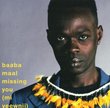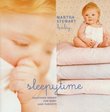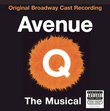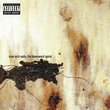| All Artists: Robert Weirich Title: Piano Music of Aaron Copland Members Wishing: 0 Total Copies: 0 Label: Albany Records Original Release Date: 1/1/2008 Release Date: 1/1/2008 Genres: New Age, Classical Styles: Instrumental, Chamber Music, Forms & Genres, Fantasies, Sonatas, Historical Periods, Classical (c.1770-1830), Modern, 20th, & 21st Century Number of Discs: 1 SwapaCD Credits: 1 UPC: 034061098928 |
Search - Robert Weirich :: Piano Music of Aaron Copland
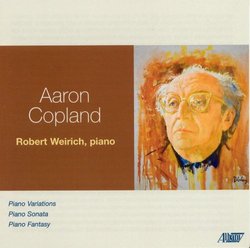 | Robert Weirich Piano Music of Aaron Copland Genres: New Age, Classical
##############################################################################################################################################################################################################################... more » |
Larger Image |
CD DetailsSynopsis
Product Description ############################################################################################################################################################################################################################################################### Similarly Requested CDs
|
CD ReviewsCopland with Poetry and Passion J Scott Morrison | Middlebury VT, USA | 01/26/2008 (5 out of 5 stars) "A fine pianist himself, Copland wrote a great deal of piano music. Three undeniable piano masterworks, spanning nearly thirty years of his compositional career, are included here. Many consider the Piano Variations, the Piano Sonata, and the late Piano Fantasy to be the best things Copland wrote for his own instrument. I would agree with that assessment. The Piano Variations were written in 1930 at a time when Copland was making a transition from his earlier jazz-influenced style to a more abstract, even intellectual, manner. In its day it seemed and even now seems shockingly modern and original. Copland admirers were puzzled and yet intrigued by it at the time. The story is often told how when the very young Bernstein met Copland for the first time he played the fairly new Piano Variations for him from memory, impressing the older composer and setting the stage for a deep friendship that lasted for the rest of Copland's life. The work is spare, abstract, angular and yet somehow still lyrical in that manner that immediately spells 'Copland.' The work begins with a stentorian and yet somehow still almost shy statement of the work's four-note theme followed by a dissonant chord. Several variations with predominantly two-voiced counterpoint ensue. In a middle section there is some jazzy playing around with syncopation and bluesy harmonies. This is succeeded by the previous sober manner, what Weirich, in his gracefully written and informed booklet notes, calls 'Spartan nobility.' Weirich's playing, here as well as throughout this marvelous CD, is both passionate and poetic. He gives the score its full due, paying particular attention to the many silences and long-held notes that others are tempted to rush through. This lends a necessary gravitas to this landmark piece. This is a deeply felt traversal recorded in rich piano sound. The Piano Sonata was written on the eve of the Second World War (1939-1941) after Copland had experienced enormous success with his populist orchestral works, Billy the Kid and El Salón México. While not as abstract as the Variations, the Sonata is nonetheless in a more difficult style than the populist ballets. In three movements, slow-fast-slow, it lasts about twenty-seven minutes and is fairly classic (except for the reversal of tempi of the movements) in construction. The finale seems, in its etiolated harmonies and two-part writing, almost desolate and one has to wonder if this was Copland's reaction to the looming World War. Weirich's playing, particularly in the finale, far surpasses Pasternack's rather heartless, often rushed performance. I have loved Leon Fleisher's recording of this work for many years and I would easily place Weirich's performance along that one. Materials in the Piano Fantasy were originally intended for a piano concerto for William Kapell but that plan ended when Kapell died in a plane crash. Copland had by then -- this was the middle 1950s -- decided to explore serial procedures in his music because, as he told Bernstein, 'I've run out of chords.' The work uses a ten-note row, reserving the remaining two notes -- E and G# -- for cadences and other 'special occasions'. It is far from doctrinaire in its seriality. Indeed, the tone row -- four descending, six ascending tones -- is used only sporadically; one comes upon it as if unexpectedly meeting an old friend. In one thirty-minute movement, this work requires the utmost concentration from the pianist -- admirably accomplished here by Weirich -- and similar attention from the listener. The whole edifice, while sounding indeed like a fantasia, has its own architectural logic which repays many hearings. Weirich takes three minutes longer than Pasternack for the Fantasy and this allows the music to breathe, to reverberate, to make its unique utterance more deeply felt. This is a beautiful performance. There is, on the obscure Phoenix label, a much-praised CD by pianist Peter Vinograde that contains the same program. I have not been able to obtain a copy of that recording and thus cannot make an comparisons with Weirich's CD. I imagine I will ultimately acquire that recording, but am in no rush because I am utterly satisfied with Weirich's performances. I've been listening to them repeatedly for the past several weeks and I keep finding unexpected felicities. Warmly recommended. Scott Morrison " Simply wonderful M. pettengell | kansas city | 10/15/2009 (5 out of 5 stars) "an incredible sound journey for those wanting to explore the other side of copland. weirich's playing is impeccable...the pieces sound alive and vibrant. i would highly recommend this recording and play it often on my chamber music program---kkfi.org."
|

 Track Listings (3) - Disc #1
Track Listings (3) - Disc #1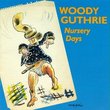
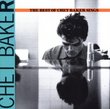
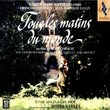
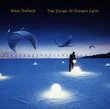

![Seussical [2000 Original Broadway Cast]](https://nationalbookswap.com/cd//m/02/4802/514802.jpg)
